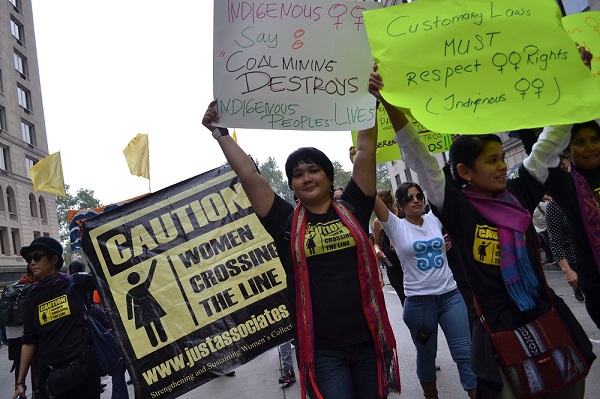Authoritarianism. Militarism. Fundamentalism. Extractivism. While contexts differ, the convergence of these four trends have become fertile ground for escalating violence against women and women activists around the world. Resistance is the fifth trend as women are leading justice struggles on all issues as well as defending their own rights. Women human rights defenders (WHRDs) and feminists in many countries are attacked for resisting blatant abuses of power and sounding the alarm about the corrupt consolidation of economic and political power, and the inequality and social conflict they fuel. In our latest publication, Between a Rock and a Hard Place: Women, Power and Change in Southeast Asia, co-author and scholar, Margo Okazawa-Rey provides a deep contextual analysis of how these trends are playing out in women’s lives in Southeast Asia. In particular, how women are organizing to resist and confront them, and why feminist movement building matters as a strategy to counter backlash and ensure that activists are stronger, safer and louder.
Between a Rock and a Hard Place explores:
- The rise in authoritarian rule, often under the guise of “democracy” and increased restrictions on the rights and freedoms of marginalized groups, including women, LGBTQ, indigenous, and poor people;
- Accelerating extraction of natural resources through the collusion between governments and corporations;
- Governments’ use of the military and armed forces to protect private interests and silence dissent; and
- The influence of nationalist and fundamentalist religious movements in shaping policy and polarizing public opinion particularly about women and ethnic minorities,
Margo Okazawa-Rey brings women’s often-invisible role to life by spotlighting the courageous ways grassroots and NGO activists and leaders stand up, speak out and organize their communities in the face of growing repression and displacement by illegal mega-projects. Bringing a feminist lens and analysis, Margo examines how these trends impact the private and public lives of women, and locates women activists’ resistance and change struggles in the long history of women’s organizing in the region. We have compiled some our favorite reflections by Southeast Asian feminists quoted in the publication below:
On the importance of systematic change
“Although they take different forms in different countries, the problems are fundamentally the same. The problem is still there because we have not yet achieved a structural or systemic change in our countries. However, the change that we have achieved is the thinking of the people and how they see the problem. Our political consciousness has been raised. We see that we cannot win this struggle or we cannot change the system … if we are not united. (And) we need to raise the level of our struggle.” – Grassroots Activist
On the importance of shared analysis and learning
“One of the things that we learned is that shared analysis really helps people feel connected and collected and build strategy. When we go back to the stories and move these stories into analysis then our issues become common or similar. We come back to the need for dignity. Then we create a vision of what dignity means. What does it actually mean to live in dignity? We need to define it as a group.” – Grassroots Activist
On the importance of investing in young women
“We knew that in Southeast Asia, strengthening young women activists’ leadership and organizing capacity required a dual strategy. On one side, it was necessary to develop individual capacity and confidence, and, on the other, to build collective strength and organization. We would identify and engage with young women already active in community organizing, whether in women’s rights or within other social justice groups. We believed that by investing in individual young activist leaders, they could play a larger role within their organizations and widen the scope and understanding of their work. Our ultimate aim was to bring a feminist perspective to the organizing and strategizing that these young women were already doing” – Nani Zulmarnani, PEKKA – JASS Southeast Asia
Read more and download the full publication here, and share widely with your networks!


























